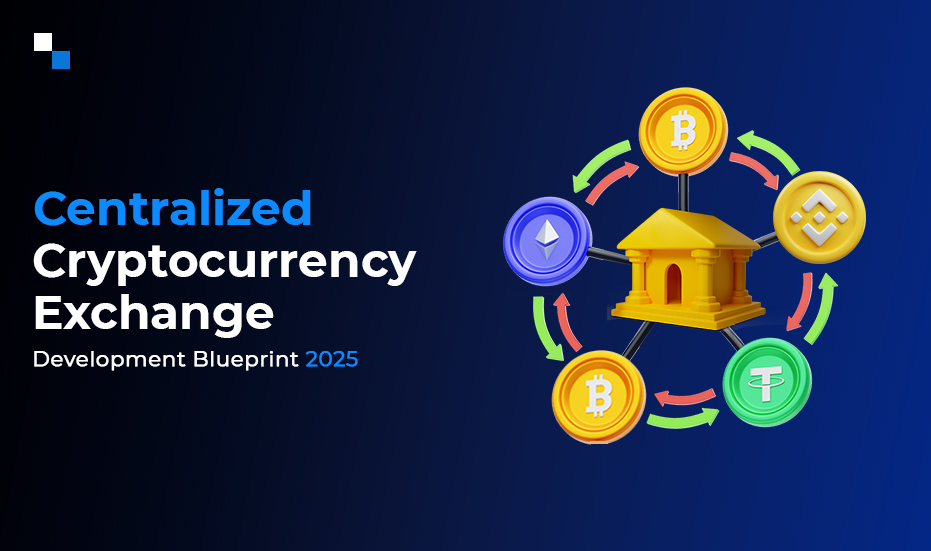
White Label Crypto Exchange: Empowering Entrepreneurs, Enabling Financial Inclusion
May 21, 2024
DeFi Protocols: The Architecture of a Decentralized Financial Revolution
May 21, 2024The recent outage of Coinbase, a major cryptocurrency exchange, on May 14th, 2024, serves as a stark reminder of the vulnerability crypto exchanges face. During this time, customers were unable to access their accounts, execute trades, or monitor their portfolios. The outage occurred during a period of high market volatility, exacerbating the frustration and potential losses for traders.
While Coinbase swiftly acknowledged the issue and worked to resolve it, the incident highlighted the vulnerabilities that even well-established cryptocurrency exchange software can face. It also underscored the need for proactive measures to ensure system resilience and minimize the impact of such events.
In the rapidly evolving world of cryptocurrencies, where transactions occur at lightning speed and market volatility is the norm, the reliability and uptime of a crypto exchange software are paramount. A system outage, even for a brief period, can lead to significant financial losses, erosion of customer trust, and reputational damage.
Why Do Outages Happen?
Crypto exchange outages can stem from various factors, broadly categorized into two areas: technical issues and external influences.
- Technical Issues: Software bugs, hardware malfunctions, overloaded servers, and network disruptions are all potential culprits.
- External Influences: Denial-of-service (DoS) attacks, power outages, and natural disasters can also trigger downtime.
The recent Coinbase outage, while the exact cause remains undisclosed, highlights the challenges cryptocurrency exchange software faces during periods of high volatility. A surge in trading activity can overwhelm systems, leading to crashes.
What Cryptocurrency Exchange Development Services learned from Coinbase’s recent system outage?
Cryptocurrency trading software development services can draw valuable lessons from Coinbase’s recent system outage to ensure robust operations in their platform. Here’s what to consider:
- High-Performance Hardware: Invest in robust servers and reliable network connections that can handle peak loads. Consider geographically distributed data centers to minimize the impact of localized disruptions.
- Scalability: Design your system to scale efficiently. Utilize cloud-based solutions that can automatically adjust resources based on demand.
- Microservices Architecture: Break down the software into smaller, independent services. This allows for isolated issues without affecting the entire system.
- Redundancy: Implement redundancy at all levels – hardware, software, and data. This ensures backup systems are in place to take over in case of a primary system failure.
Strategies for Avoiding System Outages
It is crucial to adopt a multi-faceted approach that encompasses various aspects of your platform’s architecture, infrastructure, and operational processes., to safeguard your crypto exchange software from costly outages, Here are some effective strategies that cryptocurrency exchange development services must consider:
1. Scalable and Redundant Infrastructure
Implement a highly scalable and redundant infrastructure to handle sudden spikes in traffic and transaction volumes. This includes leveraging cloud computing resources, load balancing mechanisms, and failover systems to distribute the workload across multiple servers or data centers. By doing so, you can mitigate the risk of a single point of failure and ensure seamless service continuity.
2. Robust Monitoring and Alerting Systems
Implement comprehensive monitoring and alerting systems to proactively detect and respond to potential issues before they escalate into full-blown outages. These systems should continuously monitor critical components, such as server health, network performance, database integrity, and application logs. Configuring appropriate alerts and notification mechanisms can enable your team to investigate and address emerging problems promptly.
3. Comprehensive Testing and Quality Assurance
Rigorous testing and quality assurance practices are essential for identifying and addressing vulnerabilities, bugs, and performance bottlenecks before they impact your production environment. Cryptocurrency trading software development services must Implement a robust testing strategy that includes unit testing, integration testing, load testing, and security testing. Additionally, conduct regular code reviews and maintain comprehensive documentation to facilitate easier troubleshooting and maintenance.
4. Disaster Recovery and Business Continuity Planning
Develop and regularly test disaster recovery and business continuity plans to ensure your crypto exchange software can quickly recover from major incidents or catastrophic events. This includes maintaining up-to-date backups, implementing failover mechanisms, and having well-defined incident response protocols in place. Regular drills and simulations can help identify gaps and refine your recovery processes.

5. Security and Compliance
Cryptocurrency exchange development services should implement stringent security measures to protect your exchange from cyber threats, such as distributed denial-of-service (DDoS) attacks, malware infections, and unauthorized access attempts. Adhere to industry best practices for cybersecurity, including encryption, access controls, and regular security audits. Additionally, ensure compliance with relevant regulations and standards to maintain customer trust and avoid potential legal or financial penalties.
6. Continuous Improvement and Proactive Maintenance
Adopt a proactive approach to maintenance and continuous improvement. Regularly review system logs, performance metrics, and user feedback to identify potential bottlenecks or areas for optimization. Implement a robust change management process to ensure that updates and modifications are thoroughly tested and deployed seamlessly without causing disruptions.
7. Collaboration and Knowledge Sharing
Participating in knowledge-sharing activities within your team and the broader crypto community is necessary. Participate in industry forums, attend conferences, and engage with experts to stay up-to-date with the latest developments, best practices, and emerging threats. You can proactively identify and mitigate potential risks by leveraging collective knowledge and experiences.
Ensuring system resilience and avoiding outages is an ongoing process that requires diligence, proactive planning, and a commitment to continuous improvement. By implementing these strategies, you can enhance the reliability and trustworthiness of your crypto exchange software, providing a seamless and secure trading experience for your customers, even during periods of high volatility and demand.
Disaster Recovery: Planning for the Unforeseen
Outages can occur, even with the best precautions. A robust disaster recovery plan is crucial for minimizing downtime of cryptocurrency exchange software and restoring functionality quickly.
- Data Backups: Implement regular backups of all critical data and store them securely off-site. This ensures data can be recovered in case of a disaster.
- Failover Mechanisms: Set up failover mechanisms that automatically switch to backup systems in case of a primary system failure.
- Incident Response Plan: Develop a clear incident response plan that outlines procedures for detecting, containing, and recovering from outages.
- Regular Testing: Test your disaster recovery plan regularly to ensure it functions as intended.
Conclusion
System outages pose a significant threat to the reputation and stability of crypto exchanges, as evidenced by recent incidents like the outage experienced by Coinbase. However, by cryptocurrency exchange development services can implement proactive measures such as investing in scalable infrastructure, prioritizing redundancy and failover mechanisms, conducting regular stress testing, implementing comprehensive monitoring and alerting, and embracing a culture of continuous improvement.
Want to mitigate the risk of downtime and ensure the uninterrupted operation of your exchange? Learn from past experiences, remain vigilant, and prioritize the reliability and resilience of your crypto exchange software to safeguard the trust and confidence of your users in an increasingly competitive market.
Choosing a reliable and experienced company, Antier, as your technology partner can significantly enhance the stability and reliability of your platform. We offer comprehensive solutions to mitigate the potential causes of system downtime, such as performance bottlenecks, hardware failures, or cyber-attacks. Together, we can conduct regular system audits, implement robust security protocols, and establish effective disaster recovery plans, to safeguard your cryptocurrency exchange software against unexpected disruptions. Call us for cryptocurrency trading software development services today!



